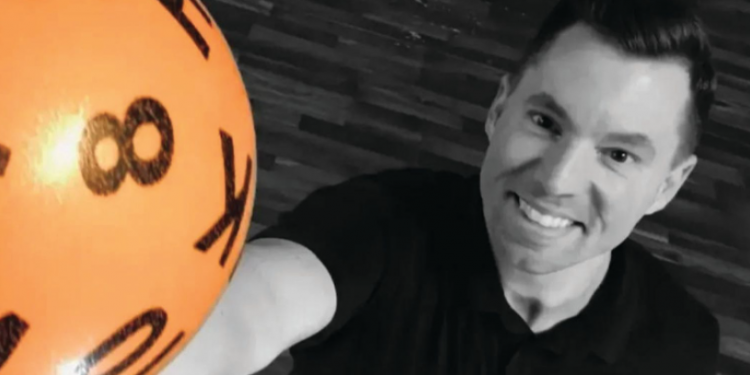By Ian Hebeisen
Trent McEntire lived an active childhood, despite experiencing chronic pain and stiffness. Whenever he found a physical task daunting or challenging, McEntire would find ways to accommodate the sport to fit his needs. He played basketball, went cycling, and in time took up dance. “When I got into dance, it felt good in my body because there’s so much mobility work, there’s so much stretching,” said McEntire.
He attended Western Michigan University to study dance. But after one particularly grueling rehearsal, McEntire woke up barely able to walk. “I had so much pain and inflammation from my knees down, that I hobbled to the shower to get water on it to try to mobilize a little bit,” said McEntire. “I thought, ‘this feels bigger than just being a sore athlete in the morning. This might prevent me from being able to pursue my professional career – even finish my degree.”
McEntire returned home and lamented to his mother, who revealed for the first time in McEntire’s life that he was born with cerebral palsy – a condition where a child is born with a brain injury, effecting development and movement.
“I was 19 when I found out,” said McEntire. “First, I was really mad, because I would have liked to have known. But truly, in hindsight, it was a gift to not know, because I didn’t have a label.”
Working hard on his degree, McEntire managed to become the first in his family to graduate from a four-year college. Part of his studies included movement science, Laban movement analysis, kinesiology, and anatomy. Using his training, McEntire began helping other people recover their mobility.
McEntire began collaborating with Pilates instructors due to their expertise in assessing conditions, and seeing clients based on referrals. “Our clients fall into what I call ‘the movement gap’, where they’re done with the medical system, their PT or OT, but they haven’t quite gotten the quality of life back and they can’t return to activities that they want to do.” McEntire begins by getting to know the client, taking them out for lunch to learn about their experience, and playing a few games to gauge the client’s conditions.
At first, McEntire applied the methods that previously worked for him. “My clients became guinea pigs,” he said. “Then there started to be published books about the brain and neuroplasticity and sensory training.” Using this new information, McEntire adapted his methods, shifting towards a “whole brain” approach.
The whole brain approach looks at three of the body’s main inputs: proprioception, the visual system, and the vestibular system. Proprioception relates to nerve endings, muscles, and joints – tissues we can see, move, and touch within the body. The visual system regulates the stimuli from our eyes, and the vestibular system, located within the inner ear, manages balance. “Those three input systems become a powerful way to make changes and have this whole brain approach,” said McEntire.
Many of the methods involve playing games specifically designed to treat a patient’s ailments. By tricking the brain into having fun with brain exercises, the brain focuses on the exercise with greater ease. “In an environment where clients might be coming in with a very serious condition, and you can help them have fun while they’re recovering, you actually get more momentum,” said McEntire.
“The approach that I’m taking is actually how we’re designed to move, build patterns, make correction, and get improvements,” said McEntire. He now teaches his movement methods to clients and professionals around the world, hoping to help other people reclaim their quality of life. “I think one of the ways to help patients and clients is educating them. They really appreciate someone who’s being an advocate for them, because they don’t know what they don’t know.”
Reflecting on his diagnosis of cerebral palsy, McEntire acknowledges how the condition set him on his current path. “It didn’t stop me. It turned into what would become 25 years of helping people recover their own movement abilities and biohacking the brain.”
McEntire currently operates out of Michigan. You can visit his website at fireupyourbrain.com. To listen to the whole conversation, listen to the Faces of TBI Podcast on Apple Podcasts, or wherever you get your podcasts.
Ian Hebeisen is a writer based in the Twin Cities. Graduating in 2020 with a degree in Literature with a Writing Emphasis, Ian spends his time writing for The Brain Health Magazine and JUVEN Press. He also writes comics, zines, short stories, and poetry. He lives with his partner and two cats, and enjoys playing board games and reading.











